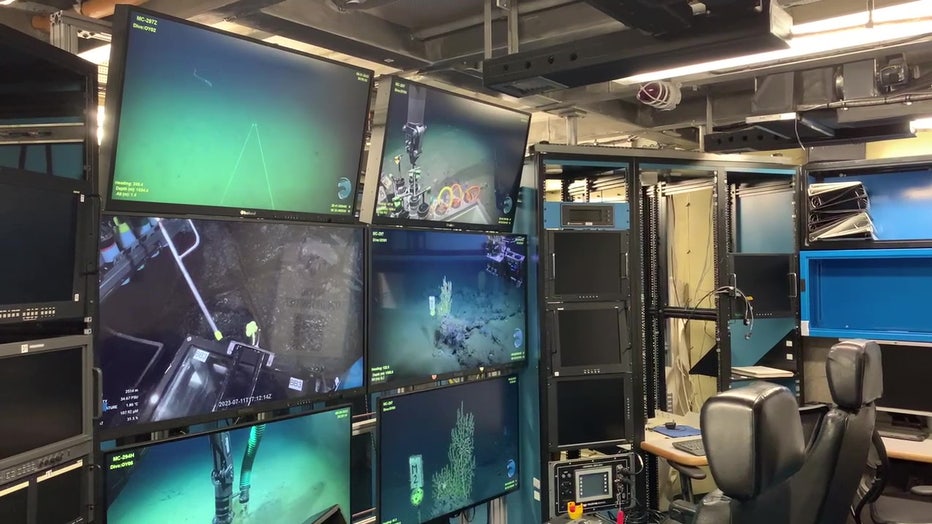USF adds new vessel to Florida's Institute of Oceanography’s fleet
ST. PETERSBURG, Fla. - USF has a new floating classroom that’s more technologically advanced than any other vessel in the Florida Institute of Oceanography’s fleet.
USF and FIO debuted their new vessel, the Western Flyer, at USF’s St. Pete campus Wednesday morning.
"We have truly arrived at the world stage for oceanographic science," USF’s President Rhea Law said.
The high-tech vessel is a partnership between USF and FIO. FIO's crew will operate it when students go on research missions.
It's part of the pilot program called Peerside between USF and FIO. The goal is to provide students with new opportunities for research while building a large ocean science and maritime workforce.
"As a longtime educator, I geek out about the student experience, and I see several of our students here, and you're the reason we do all the things that we do," USF St. Pete Chancellor Christian Hardigree said. "You motivate us. We're trying to provide these learning platforms where you elevate into the leaders of tomorrow," she said.
READ: Need a dating wingman? St. Pete man develops app to help break the ice
The Western Flyer has a remotely operated vehicle that can travel into the deepest parts of the Gulf and live stream video and data back to the ship's control center.
The ship can sail farther than FIO's other vessels, stretching into the Caribbean Sea.

One of the work stations on the Western Flyer
It has labs onboard and sleeping quarters for 16 students and 10 crew members.
A moon pool which is an opening in the floor where students deploy equipment like a remotely operated vehicle, is also included.
"With the arrival of the Western Flyer, a new world of knowledge and hands-on experience opens up, empowering our city's best and brightest minds to embark on transformative research," St. Pete Mayor Ken Welch said.
Welch and other local and state representatives toured the ship Wednesday.
READ: St. Pete City Theater hosting summer camp for aspiring actors
"This is quite a vessel, and it will indeed be able to carry out longer missions, more scientists, more students, and will be able to do more interdisciplinary expeditions and research opportunities," Law said.
"It brings entirely new research capabilities," Catalina Rubiano, a graduate student picked for the program, said.
"Just the opportunity to go out at sea at an early time in your career during your undergrad, those opportunities don’t come easily, so for it to be offered as an option for students just in the sciences that’s rare enough, but for them to have the additional outreach focus on reaching people who aren’t even in science, people who are maybe more interested in industry positions, it’s kind of broadening that reach beyond just the sciences," Rubiano said.
The Monterey Bay Aquarium Research Institute in California gave the ship to USF and FIO.
"We are honored to accept this generous gift from the Monterey Bay Aquarium Research Institute. The Western Flyer will provide new real-world opportunities for students, help us fill the talent pipeline to meet workforce needs, and expand our research capabilities," Law said.
Tomorrow, the Western Flyer heads about 100 miles offshore for students to study sinkholes for six days.

